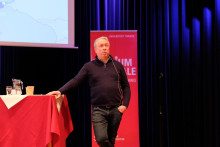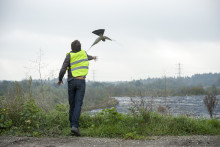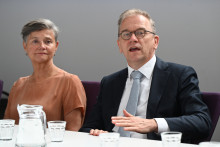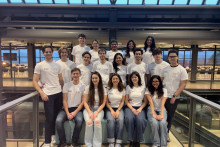She explained the situation in the Sancaktepe District, consisting of 22 wards with much of the forested area lying in the north and south. ‘It’s crucial to preserve the natural areas. Overall in Istanbul, uncontrolled urban development in the form of informal settlements has created unsecure living conditions and caused environmental problems.’ The researcher said the problem has put obstacles for the implementation of the transportation master plan and is slowing down the process of sustainable development of the city.
Her biggest worry is to protect natural areas and get clear analyses for the implementation of viable policies and to address the problem of informal settlements. ‘Planning policies should incorporate proactive measures which are oriented to address informal growth before its appearance.’
As a result, during her fieldwork she used spatial technologies such as GIS and modeling, incorporating her study results into planning processes and her final thesis. ‘Currently, the local authorities of Sancaktepe have initiated dynamic development of the district with special focus on the infrastructure and rehabilitation of informal settlements,’ Dubovyk said.
 |
| Discussions on the Sancaktepe Urban Reconstruction Rights Transfer Project: Olena Dubovyk was an ITC students who researched in the Asia district of Istanbul and was invited by IMP as a guest of the Sancaktepe District Mayor Ismail Erdem. The mayor answered her questions about city planning projects. (Photo: Gijs van Ouwerkerk) |
 |
| Planting the seeds of collaboration: Six master’s students who conducted fieldwork in Istanbul, IMP staff members and the Head of the IMP gathered in front of a map of the capital city, from left to right: Pedzisai Kowe, Gyanendra Raj Devkoty, Selahattin Taspinar (IMP staff), Ibrahim Baz (Head of IMP), Emmanuel Kofi Gavu, Ulas Akin (IMP staff), Nancy Blakelock, Olena Dubovyk and James Gachanja. (Photo: Emmanuel Kofu Gavu) |







